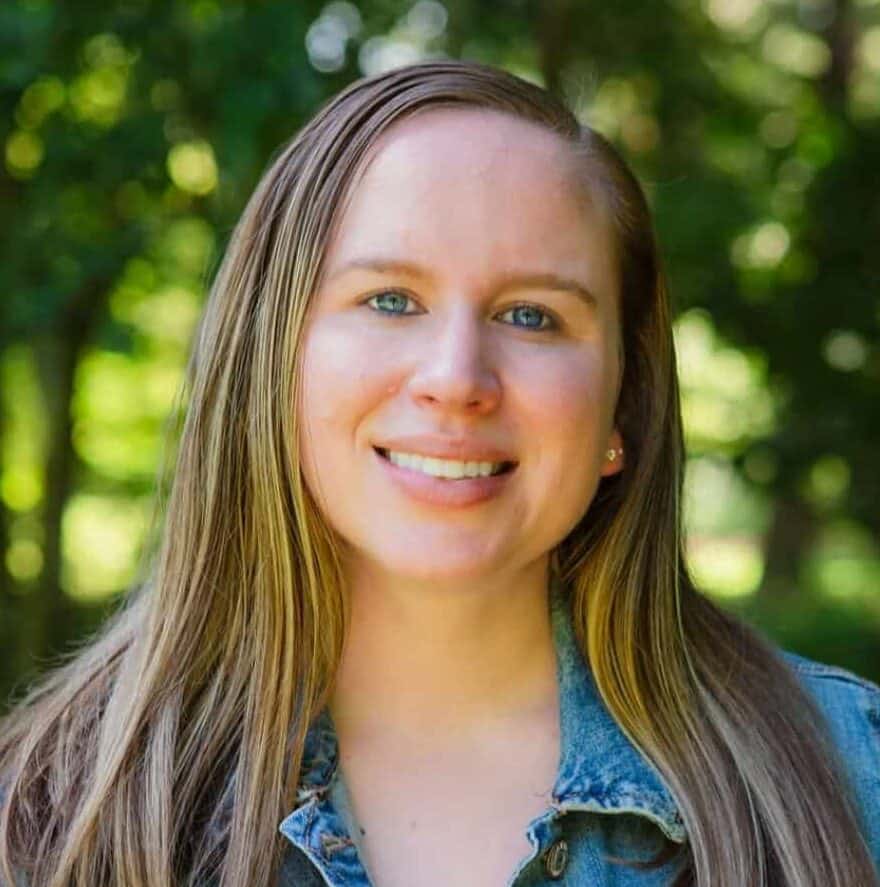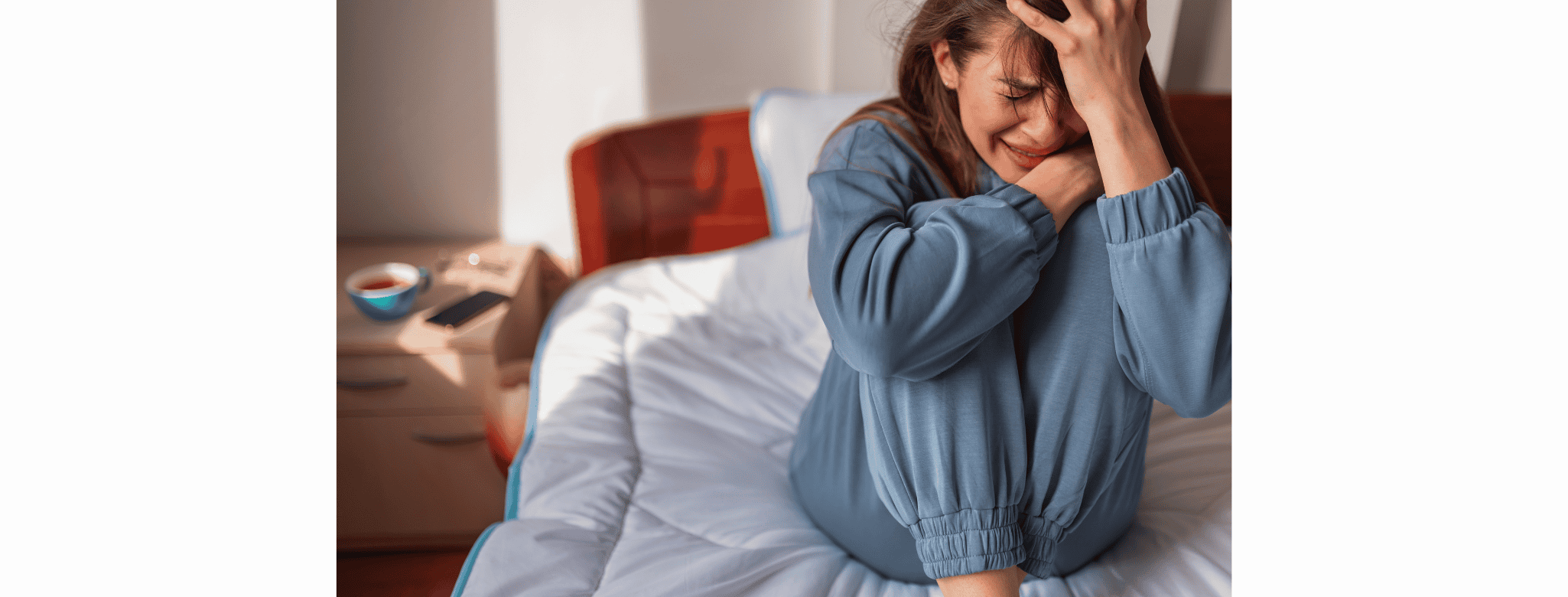5 Common Questions about Childhood Anxiety

By Erin Jones, LCMHC, PMH-C
As an anxiety specialist, I feel passionate about helping children, teens, and their parents learn how to recognize symptoms and seek help. An important place to start is in recognizing what pediatric anxiety is and how to start looking for a mental health provider. Below are 5 common questions on anxiety in children:
What is Pediatric Anxiety? What are the Symptoms?
Pediatric anxiety is when children and teens under age 18 experience anxiety symptoms. When we refer to “childhood anxiety” or pediatric anxiety, we are typically referring to Generalized Anxiety Disorder (GAD).
GAD is defined by frequent worries that have been difficult to control for at least 6 months. The worry tends to be excessive, or out of proportion to the actual situation. Sometimes children will share their worries. Depending on their age, they may do this by bringing up a topic frequently. However, younger children may not be able to vocalize or explain why they’re feeling anxious.
They may also present with physical symptoms, such as headaches, stomach aches, and sleep disturbances that are not better explained by a medical condition. They may seem to take longer to do daily activities, refuse to engage in school, or have trouble concentrating- even on tasks that they tend to enjoy.
Let’s set the record straight- It’s not your fault if your kid struggles with anxiety!
Erin Jones, LCMHC, PMH-C
What are some Common Types of Childhood Anxiety?
Besides Generalized Anxiety Disorder, children can experience several different types of anxiety or related disorders in childhood. For example, many experience Social Anxiety Disorder or social fears. This increases in the adolescent and teen years. Many children also experience specific phobias and separation anxiety.
I specialize in working with Obsessive Compulsive Disorder, which can often present in childhood or teen years. Though it is not classified as an anxiety disorder, it has some similarities. OCD is defined by the presence of obsessions or intrusive thoughts and compulsions, which are mental or physical behaviors performed in an attempt to reduce or neutralize the obsessions.
Kids with OCD often do report worries, though some only report obsessions presenting as urges (such as a drive for things to feel “just right”) or disturbing thoughts. For more detailed information and resources on Obsessive Compulsive Disorder, I recommended visiting the International OCD Foundation’s Website: iocdf.org
Did I Give My Child Anxiety? Is it My Fault?
Let’s set the record straight- It’s not your fault if your kid struggles with anxiety!
Research shows that there likely is a genetic component to anxiety, though other environmental factors such as stressful events and other external influences can also play a role. Even a child’s general temperament can influence their mental health.
If you and your child both experience anxiety, then you’ll be able to be the best person to understand and support them.

When is it time to get help?
When it comes to anxiety in children, it can be difficult to know when it’s time to get help. Many parents of clients often ask me how to tell the difference between “normal worries or stress” vs an anxiety disorder.
The difference depends on frequency, duration, and intensity. Worries tend to come and go whereas symptoms of anxiety tend to stick around for days, weeks, and even months. Worries also tend to be proportional to the event that one is worrying about. For example, it can be reasonable to worry to some extent about an exam at school. However, experiencing distress around multiple assignments and for days/weeks prior to an exam might be indicative of a struggle with anxiety.
Ultimately, if anxiety symptoms are persistent and interfere with a child’s daily life, it can be beneficial to get some professional support.
When in doubt, you could always seek support from a mental health professional to support you and your child in understanding anxiety and ways to cope.
How Do I Find a Qualified Therapist for my Child?
It can be difficult to find the right therapist for you and your child. Below are some questions that I suggest asking to get to know whether or not a provider is qualified to work with your child:
- How much experience do you have working with children?
- Do you specialize in child anxiety?
- What therapy modalities do you use to work with children with anxiety?
- Do you include parents and family in the treatment process?
I recommend looking for providers with experience in evidence-based practices, such as Cognitive Behavioral Therapy (CBT) and Exposure and Response Prevention (especially for OCD, social anxiety, and phobias). It is also likely to be more helpful for the child and family if parents or caregivers are incorporated into the process to be able to support them outside of session.
Resources/References:
About Erin Jones, LCMHC, PMH-C. Erin is a Licensed Clinical Mental Health Counselor (LCMHC) with over 5 years of experience providing evidence-based practice counseling services for individuals with Obsessive Compulsive Disorder (OCD) and related diagnoses. She works at Bull City Anxiety and OCD Treatment Center, where she sees individual clients, manages an intensive Exposure and Response Prevention (ERP) program, and runs some groups. She is especially passionate about the self-compassion group for Moms with OCD. She is the treasurer for OCD North Carolina, local affiliate of the International OCD Foundation. Erin is passionate about all things OCD-related and perinatal care.
Spread the word
Medical Disclaimer: All content found on the HER Health Collective Website was created for informational purposes only and are the opinions of the HER Health Collective experts and professional contributors. The Content is not intended to be a substitute for professional medical advice, diagnosis, or treatment. Always seek the advice of your physician or other qualified health providers with any questions you may have regarding a medical condition. Never disregard professional medical advice or delay in seeking it because of something you have read on this Website. If you think you may have a medical emergency, call your doctor, go to the emergency department, or call 911 immediately.
